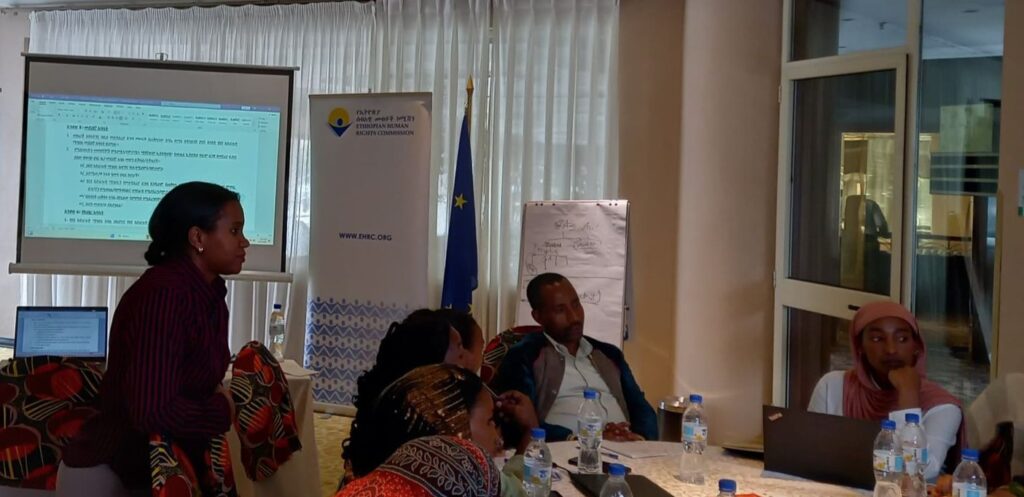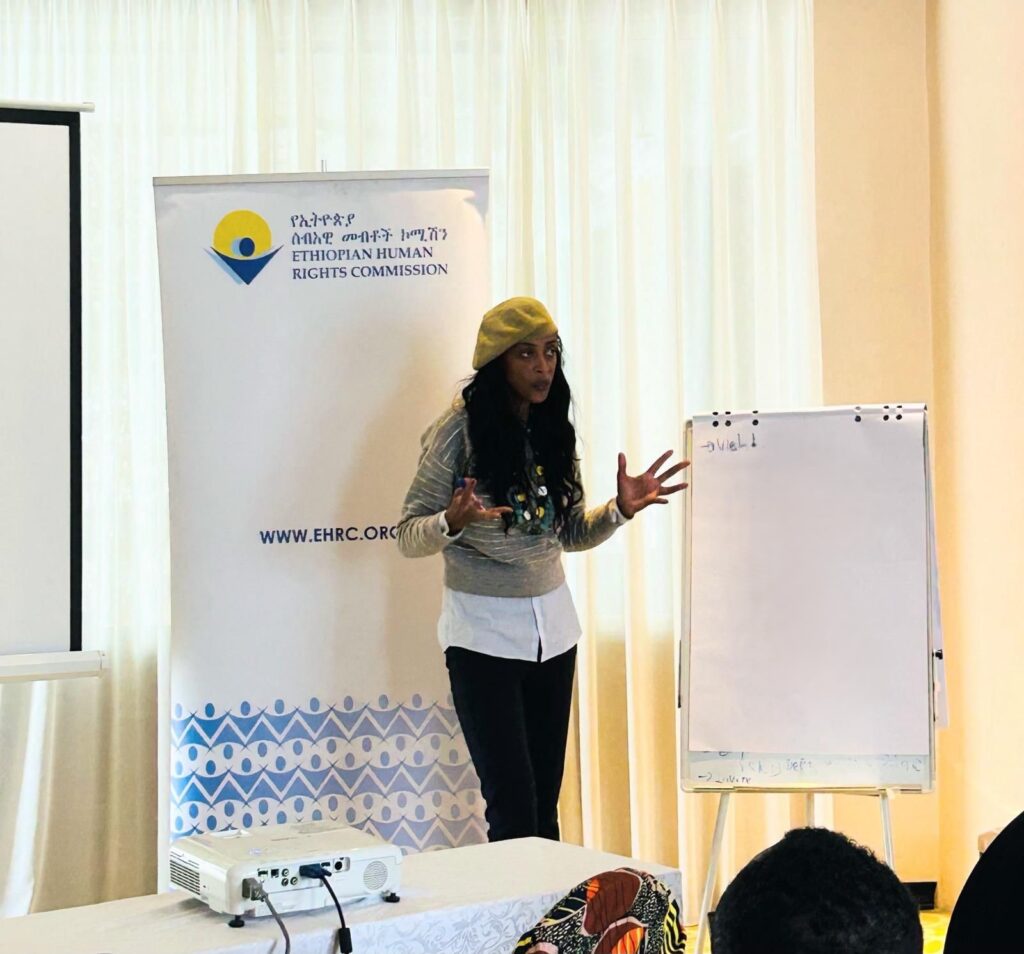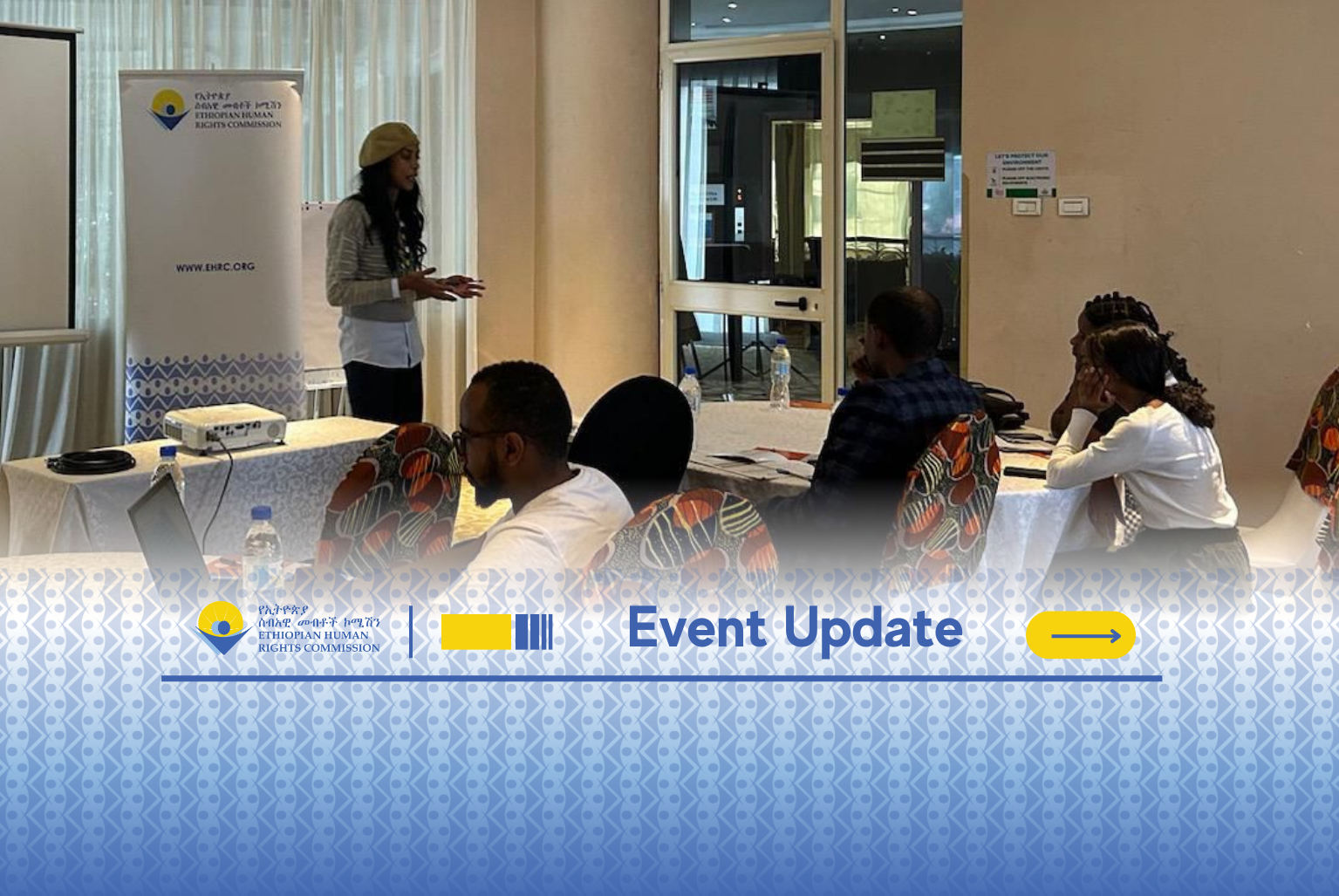Ethiopian Human Rights Commission (EHRC) and Office of the High Commissioner for Human Rights—East African Regional Office (OHCHR-EARO) organized a strategic workshop in Addis Ababa city from September 17-20, 2024. The workshop focused on organizing victims’/survivors’ associations for their effective participation in the national Transitional Justice (TJ) process. The participants were members of 10 victims’/survivors’ associations and informal collectives from Amhara, Somali and Tigray regions. Collectives from Afar and Gambella regions who joined the workshop at a later stage also shared their experience. Representatives from the International Centre for Transitional Justice (ICTJ) also took part and facilitated various sessions.
The strategic workshop is part of a continuing capacity-building and peer-to-peer learning initiative. It comes after two rounds of workshops held in October 2023 and March 2024, as well as an experience-sharing visit for victims’/survivors’ associations to Jijiga, Somali Region, held in June 2024.

The strategic workshop aimed to discuss the capacity, challenges and opportunities of the various regional associations and the possibility of establishing a nationwide consortium of victims’ associations and groups. Given that the workshop was organised in response to a proposal by the associations themselves, representatives from the associations started off the workshop with a presentation of their shared vision and goals for coming together to engage in the national TJ process. Participants held in-depth discussions to refine and improve these foundational elements, with technical support from organising institutions.
The workshop included presentations and discussion sessions on current developments in Ethiopia’s Transitional Justice process and importance of victims’ participation in the process. Participants also benefited from presentations on the experiences of other countries where victims’ and survivors’ organisations have come together following various organising models. They explored ways to organise themselves to achieve their goals while taking into account their individual contexts and the national law on civil societies, with the help of a representative from the Authority for Civil Society Organisations (ACSO).

Following extensive discussions, participants identified the formation of a consortium as the most relevant alternative and addressed key issues associated with establishing this organisational framework. The workshop concluded with the development of an action plan for the consortium’s registration and operationalisation. This collaborative effort is viewed as a critical step towards improving coordination, amplifying victims’ voices and enhancing their role in the TJ process, which the EHRC will continue to support.
